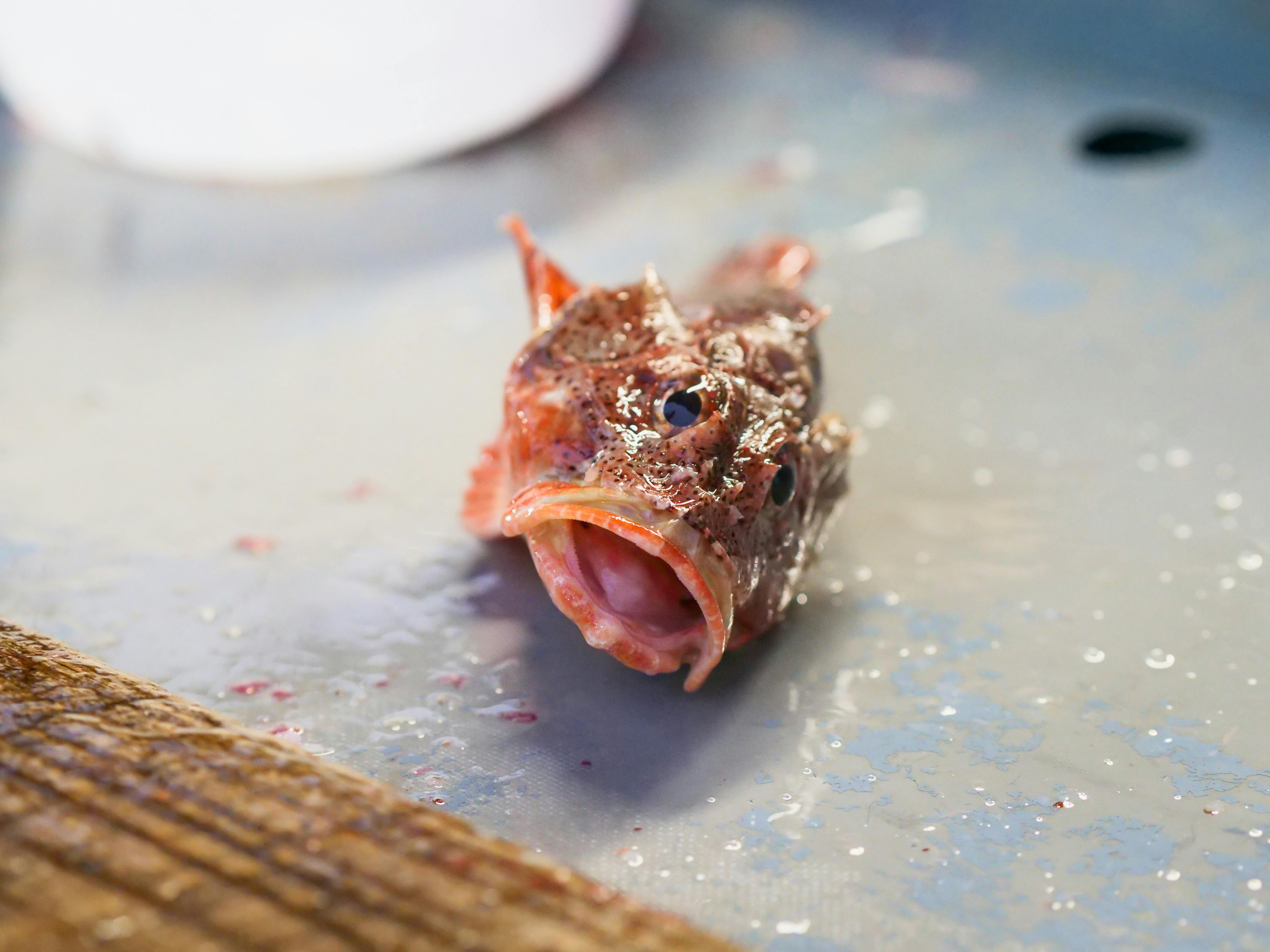
Effective Ways to Use Daphnia for Your Betta's Health
As a pet owner, ensuring the health of your Betta fish is paramount. One of the most effective ways to achieve this is by incorporating Daphnia into their diet. Daphnia, commonly referred to as water fleas, are small aquatic organisms that serve as an excellent live food source for Betta fish. They provide high protein content and essential nutrients required for optimal growth and health. Particularly in 2025, as fish nutrition continues to evolve, understanding how to effectively use Daphnia in your Betta's diet can significantly impact their overall well-being.
This article delves into the multiple benefits of Daphnia, effective feeding strategies, and best practices to integrate this nutritious live food into your Betta fish's diet. By optimizing your Betta feeding routine, you can promote better health, vibrant colors, and enhance their natural behavior. Key takeaways include the nutritional advantages of Daphnia, handling and cultivating them, and maintaining water quality standards to support your Betta fish's thriving environment.
Understanding the Benefits of Daphnia for Betta Fish
Nutritional Value of Daphnia
Daphnia is considered a high protein food, important for Betta fish at all life stages. These small crustaceans contain essential fatty acids and amino acids that support fish health, boost immune systems, and promote proper growth rates. The nutritional analysis of Daphnia shows that they are also rich in soluble vitamins, contributing significantly to the dietary needs of Betta fish. Regular feeding of Daphnia can lead to significant improvements in fish health and vitality.
Natural Feeding Behavior of Bettas
Betta fish are natural predators and thrive on live food sources. Using Daphnia mimics their natural hunting behavior, encouraging physical activity and mental stimulation, which are vital for their development. Observing Betta fish behavior during feeding times reveals their instinctual reactions and increased engagement with their environment, which helps to alleviate stress and promotes well-being.
Daphnia as a Sustainable Food Source
In addition to being nutritious, Daphnia culture represents a sustainable feeding practice. Cultivating Daphnia minimizes reliance on commercially produced fish food, reducing the environmental impact associated with industrial aquaculture. By managing your own Daphnia cultures, you ensure a consistent supply of live food, reflecting sustainable aquaculture practices while providing a nutrient-rich diet for your Betta fish.
Improving Water Quality with Daphnia
Incorporating Daphnia into your Betta's diet can also help maintain better water quality in the aquarium. These organisms serve as natural filter feeders, consuming excess nutrients and organic matter in the water, thereby improving overall water parameters. Regularly feeding Daphnia not only benefits your Betta but also enhances the aquatic ecosystem within the tank, contributing to healthier living conditions for all inhabitants.
Fostering Stronger Growth Rates
Feeding Bettas with Daphnia can lead to notable growth performance. The nutrient composition of Daphnia supports metabolic processes that enhance the Betta's growth rate. A consistent and balanced diet that includes Daphnia can lead to improved fish development and quicker reach to mature size, boosting the overall health of your Betta.
How to Culture Daphnia for Your Betta Fish
Setting Up a Daphnia Culture
Creating a Daphnia culture at home is both easy and rewarding. Start by preparing a suitable environment such as a dedicated tank or container filled with aged dechlorinated water. Add aquatic plants to provide natural habitat and enhance water quality. Use an air pump to keep the water oxygenated and maintain gentle water flow, preventing Daphnia from settling at the bottom. Ensure that the water temperature remains optimal between 18 to 22 degrees Celsius.
Feeding Your Daphnia Culture
Daphnia feeds primarily on phytoplankton and algae, so it's essential to provide rich food sources to support their growth. You can use powdered spirulina or commercially available Daphnia feed to enhance their nutrition. Proper food management ensures that your cultures remain vibrant and productive, maximizing both the quality and quantity of Daphnia available for feeding your Betta.
Harvesting Daphnia Efficiently
Harvesting Daphnia should be performed carefully to prevent over-extraction from the culture. Use a fine mesh net to scoop them out without depleting the population. Aim to harvest only a portion of the population while leaving enough behind to sustain growth. Regular harvesting will not only keep your Daphnia thriving but also ensure a fresh supply for your Betta feeding schedule.
Managing Water Quality in Daphnia Cultures
Maintaining optimal water conditions in your Daphnia cultures is crucial for their growth and health. Regularly check water parameters such as ammonia levels, pH, and temperature. Water changes every week will help prevent pollutants from accumulating while promoting a healthy environment for Daphnia. Observing your cultures will provide vital insights on their health and water quality needs.
Dealing with Challenges in Daphnia Cultivation
Common challenges in Daphnia cultures include sudden die-offs, which can occur from temperature fluctuations or water quality issues. Monitoring these factors closely can help you preemptively address any issues. Implementing biosecurity measures will protect your cultures from unwanted pests and diseases. Regularly examining the health of Daphnia assists in understanding and resolving cultivation challenges effectively.

Integrating Daphnia into Your Betta Feeding Routine
Optimal Feeding Strategies
To maximize the benefits of Daphnia for your Betta fish, integrating them into your feeding routine is essential. Best practices involve offering Daphnia as part of a varied diet alongside other protein sources. Implement feeding frequency that allows your Betta time to forage naturally. Intermittent fasting can also be beneficial, promoting digestion and preventing obesity, which is crucial for Betta health.
Understanding Portion Sizes
Feeding volume is a key factor in ensuring a balanced diet. Adjust the portion size according to your Betta's appetite and activity level. Providing an excess can lead to overfeeding and deteriorating water quality while underfeeding may not meet their nutritional requirements. Aim for small quantities that your Betta can consume within a few minutes, observed ideally without any leftover food.
Monitoring Betta Fish Health
Regularly monitoring your Betta fish's health is essential, especially when introducing new foods. Look for signs of distress or changes in behavior following Daphnia feeding. Over time, you will become attuned to your fish's dietary preferences and reactions to different feeding strategies. Ensuring a nutrient-rich diet combined with optimal management will lead to a flourish in your Betta's well-being.
The Importance of Food Variety
Maintaining food variety is vital in preventing boredom and encouraging natural foraging. Combine Daphnia with other live foods such as mosquito larvae or brine shrimp to create a diverse diet suitable for Betta fish feeding habits. This approach not only enhances the nutritional spectrum for your Betta but also stimulates their natural hunting instincts.
Evaluating Feeding Outcomes
Tracking the influence of Daphnia on your Betta fish's health will aid in evaluating your feeding success. Observe growth rates, color vibrancy, and overall behavior changes. These indicators will reflect the dietary impact appropriately and let you adjust feeding strategies in relation to their development and health goals. Keeping a log on your Betta's response to Daphnia can yield valuable insights on feeding effectiveness.

Conclusion: Maximizing Your Betta's Health with Daphnia
Utilizing Daphnia as a live food source can undoubtedly influence the well-being of your Betta fish. With significant nutritional benefits, sustainable cultivating practices, and promoting natural feeding behaviors, Daphnia should be a staple in your Betta's diet. Understanding how to properly culture, harvest, and integrate Daphnia into feeding routines will ensure your Betta fish experience optimal health and vibrant growth. By adopting these strategies in 2025, you take an essential step toward enhancing your fish's quality of life, creating a lively and healthy aquatic environment.